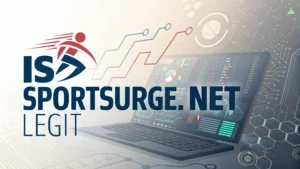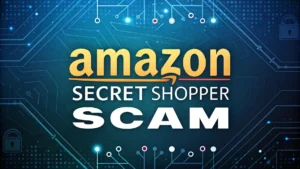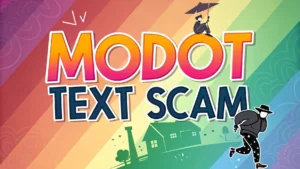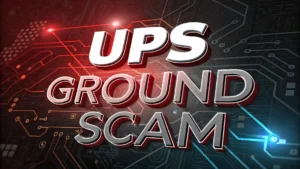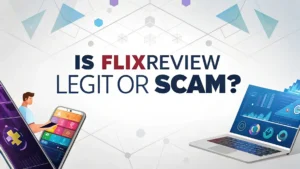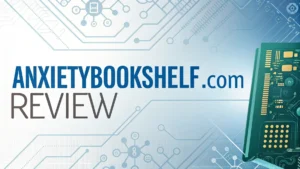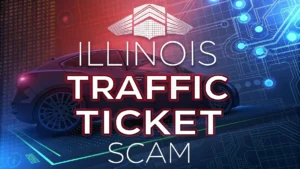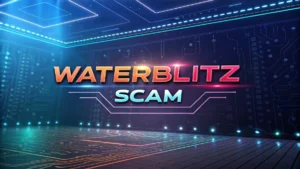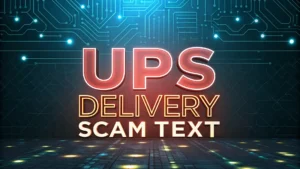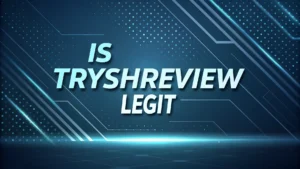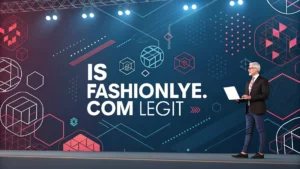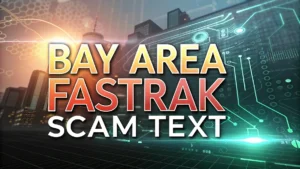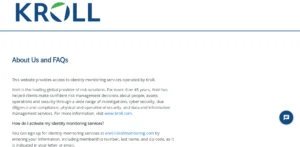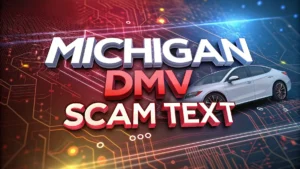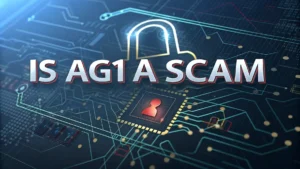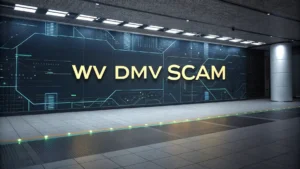Have you received a text message about unpaid tolls from a service called NCHighpass? You are not alone. Many drivers across North Carolina and beyond are getting these messages claiming to be from toll collection services.
These texts create fear by threatening legal action, license suspension, or additional fees if you don’t pay immediately. The problem? NCHighpass is not a legitimate toll collection service. It’s a sophisticated scam operation designed to steal your money and personal information.
The official toll collection program in North Carolina is called NC Quick Pass, not NCHighpass. This growing fraud scheme has prompted warnings from the North Carolina Department of Justice, the FBI, and the Federal Trade Commission.
In this post, we’ll explore everything you need to know about the NCHighpass scam, how to identify it, and what steps to take if you’ve been targeted.
Table of Contents
Key Takeaways: Understanding the NCHighpass Scam
- NCHighpass is not a legitimate toll collection service but a scam operation designed to steal your financial information and money
- The official toll collection program in North Carolina is called NC Quick Pass, which only sends texts from the number 696277
- These scams work by sending mass text messages to random phone numbers claiming you have unpaid tolls
- Scam texts typically include threatening language about legal consequences, license suspension, or increasing fees
- The links in these texts lead to fake payment portals that steal credit card information and personal data
- According to the FBI, over 2,000 complaints about fraudulent toll collection texts were received in just three states over a single month
- The North Carolina Attorney General Jeff Jackson is actively investigating these scams
- Law enforcement has tracked these scams to international operations that have recently moved to the US
- NC Quick Pass will never request payment via text message under any circumstances
- If you receive a suspicious text, do not click any links and report it to the Federal Trade Commission
The Difference Between NCHighpass and NC Quick Pass
The most important thing to know is that NCHighpass is not legitimate. This fake name is designed to sound similar to the real toll collection service in North Carolina, which is called NC Quick Pass. Scammers create domain names like nchighpass.com or variations such as nchighpass.com-ncwa.top to fool people into thinking they’re dealing with an official government service.
The genuine NC Quick Pass is the official toll collection program managed by the North Carolina Turnpike Authority. It offers electronic toll collection for North Carolina’s toll roads. The real service maintains an official website at ncquickpass.com and sends text messages only from the number 696277.
Understanding this difference is crucial because scammers rely on confusion and the general similarity between their fake names and the legitimate service. They create websites that look professional and official, using colors, logos, and language that mimic government sites.
When you receive communications from the real NC Quick Pass, they will only come from specific, verifiable sources:
- Text messages only from the number 696277
- Emails only from no-reply-ncquickpass@ncdot.gov
- All legitimate links will include ncquickpass.com or secure.ncquickpass.com
Any message claiming to be from “NCHighpass” or similar variations is guaranteed to be fraudulent.
How the NCHighpass Scam Works
The NCHighpass scam operates through a technique called “smishing” – a combination of SMS and phishing. Here’s the typical pattern of how these scams target victims:
First, scammers send out thousands of text messages to random phone numbers, not just to people who use toll roads. The text claims you have an unpaid toll and need to pay immediately to avoid serious consequences. This creates a sense of urgency and fear.
Next, the message includes a link to a website where you can supposedly pay the toll. The website looks legitimate with official-looking logos and professional design. But it’s actually a fake payment portal set up to steal your information.
When you enter your credit card details or personal information on this fake site, the scammers capture everything. They can then use your credit card for unauthorized charges or sell your personal data to other criminals on the dark web.
The most alarming aspect is how these scams have evolved. What started as small operations has grown into sophisticated international fraud rings. According to reports from the North Carolina Department of Justice, these scam operations were initially traced to Canada in early 2024 but have since moved to the United States, dramatically scaling up their efforts.
The scammers are constantly changing their tactics and domain names. One day it might be “nchighpass.com” and the next it could be “nctollpay.com” or something similar. This makes them harder to track and shut down.
Red Flags That Identify NCHighpass Scam Messages
Knowing how to spot these fake messages can save you from becoming a victim. Here are the key warning signs that a toll payment message is a scam:
The message comes from an unknown or random number, not from the official NC Quick Pass short code 696277. Scam texts often come from international phone numbers or email addresses posing as text messages.
The text demands immediate payment and creates urgency by mentioning legal action, license suspension, or rapidly increasing fees if you don’t pay right away. Legitimate toll agencies don’t threaten you via text.
The message contains a suspicious link that doesn’t include ncquickpass.com. The link might include words like “nchighpass,” “trcpaymt,” or other variations that sound official but aren’t legitimate.
The text contains spelling or grammar errors, which are common in scam messages. Official government communications are typically well-edited.
The amount requested is often unusually small (like $8.50 or $12.75), designed to seem reasonable enough that you might pay it without question.
The message may claim to be your “final notice” even though you never received any previous notices. This is a tactic to create fear and urgency.
If you click the link, the website asks for excessive personal information like your Social Security number, which legitimate toll payment systems would never request via a text message link.
Remember that NC Quick Pass will never ask for payment via text message. This is perhaps the most important red flag – any text requesting toll payment is automatically suspicious.
Real Examples of NCHighpass Scam Texts
To help you identify these scams, here are some examples of what these fraudulent messages typically look like:
“NC HIGHPASS: Final Notice of unpaid tolls $14.50. Pay within 12hrs to avoid $50 late fee and license suspension. Pay now: nchighpass.com-ncwa.top/od”
“NCTOLL: You have 1 unpaid toll of $8.25. Your payment is overdue. Pay now to avoid a $75 penalty and legal processing: nchighpass-gov.site/pay”
“ATTENTION: This is the final reminder from NC Toll Services. Your account has an outstanding balance of $12.75. Pay within 24 hours to avoid legal action: ncwa-tollpay.com/final”
“NCHighpass Alert: Your transponder shows an unpaid toll from [date]. Pay $9.50 now to avoid DMV registration hold: nch-tollway.xyz/pay”
These messages all share common elements: a sense of urgency, threats of penalties, small dollar amounts that seem plausible, and links to websites that are not the official NC Quick Pass domain.
The key point is that legitimate toll authorities don’t communicate this way. The North Carolina Turnpike Authority has explicitly stated that NC Quick Pass will never request payment by text, will only send texts from the secure short code 696277, and will never threaten legal action or license suspension via text message.
The Scale and Impact of NCHighpass Scams
The NCHighpass scam is not a small-scale operation. It’s part of a massive wave of toll-related scams that have spread nationwide. According to information released by the North Carolina Department of Justice, the FBI’s Internet Crime Complaint Center received over 2,000 complaints about fraudulent toll collection texts in just three states over a single month in early 2024.
The scam has since grown exponentially. NC Quick Pass is now receiving thousands of phone calls each day from citizens asking about the legitimacy of these texts. This flood of fraudulent messages is not only harming individuals who fall victim but also creating a burden on legitimate toll authorities who must handle concerned customer inquiries.
The financial impact is significant. When victims click on these links and provide payment information, they risk not only the small toll amount requested but potentially much larger unauthorized charges. Scammers can empty bank accounts, max out credit cards, or sell financial information to other criminals.
Beyond the direct financial losses, victims often face the hassle and stress of disputing charges, closing compromised accounts, monitoring credit reports, and potentially dealing with identity theft. The psychological impact shouldn’t be underestimated either – many victims feel violated, embarrassed, and anxious after falling for such scams.
This issue has become so widespread that Attorney General Jeff Jackson has publicly stated that these scams are targeting “a massive number of people—including me.” The fact that even high-ranking government officials are receiving these texts shows the indiscriminate nature of this scam operation.
What To Do If You Receive an NCHighpass Scam Text
If you receive a text claiming to be from NCHighpass or any other toll service demanding payment, follow these steps to protect yourself:
Do not click on any links in the message. This is crucial – the links lead to malicious websites designed to steal your information.
Delete the message immediately after reporting it. This prevents you from accidentally clicking the link later.
Report the scam text to the Federal Trade Commission at reportfraud.ftc.gov and the FBI’s Internet Crime Complaint Center (IC3) at ic3.gov. Include the phone number that sent the text and the website listed in the message.
Forward the suspicious text to 7726 (SPAM), which helps mobile carriers identify and block scam numbers.
If you want to check if you actually have any unpaid tolls, visit the official NC Quick Pass website directly by typing ncquickpass.com into your browser (don’t click links from emails or texts).
Contact NC Quick Pass customer service directly at 877-769-7277 if you have questions about your account or potential unpaid tolls.
If you already clicked a link or provided information:
- Monitor your accounts closely for unauthorized charges
- Contact your bank or credit card company immediately to report potential fraud
- Consider placing a freeze on your credit with the major credit bureaus
- Change passwords for any accounts that may have been compromised
How to Verify Legitimate NC Quick Pass Communications
The North Carolina Turnpike Authority has provided clear guidelines on how to verify legitimate communications from NC Quick Pass:
For text messages, NC Quick Pass will only send texts from the secure short code 696277. This is the number that will appear as the sender of any legitimate text message.
NC Quick Pass will never request payment by text. Any text asking you to pay a toll is automatically suspicious.
All links in legitimate NC Quick Pass communications will include ncquickpass.com or secure.ncquickpass.com. Never click on links that have different domain names.
For emails, NC Quick Pass will only ever email you from no-reply-ncquickpass@ncdot.gov. Check the sender’s email address carefully.
NC Quick Pass will never ask for personal or financial information by email or text. They already have your account information if you’re a customer.
If you’re unsure about a communication you’ve received, the safest approach is to contact NC Quick Pass directly using their published customer service number: 877-769-7277.
How Law Enforcement Is Fighting NCHighpass Scams
The fight against NCHighpass and other toll scams involves multiple agencies working together. Attorney General Jeff Jackson and the North Carolina Department of Justice are actively investigating these scams and collaborating with federal and international partners.
Law enforcement has traced the origin of these scams to operations that initially began in Canada in early 2024. Since then, investigators believe the perpetrators have moved operations to the United States and dramatically scaled up their efforts – a sign of the scheme’s profitability.
The Federal Trade Commission and FBI have also issued alerts about toll text scams and are gathering data from victim reports to identify patterns and track down the perpetrators.
One challenge law enforcement faces is that these scam operations can quickly change their tactics, domain names, and messaging to evade detection. By the time one scam site is shut down, the criminals have often already set up new ones.
The most effective approach is a combination of law enforcement action and public awareness. The more people who recognize these scams for what they are, the less successful they will be.
Protecting the Community from NCHighpass Scams
Protecting our communities from NCHighpass and similar scams requires a collaborative effort. Here are some ways we can all help:
Share information about these scams with friends, family, and especially vulnerable individuals who might be less familiar with digital scams.
Report scam attempts even if you didn’t fall for them. Your reports help authorities track and combat these criminal operations.
Stay informed about the latest scam tactics by following updates from the North Carolina Department of Justice, the FTC, and the NC Quick Pass website.
Be skeptical of unsolicited messages, especially those creating urgency or fear. Take time to verify before responding or clicking links.
If you’re involved in community organizations, consider organizing awareness sessions to educate others about recognizing and avoiding such scams.
Remember that education is our best defense against these scams. The more people know about how NCHighpass and similar scams operate, the harder it becomes for scammers to find victims.
Frequently Asked Questions
Is NCHighpass a legitimate toll collection service?
No. NCHighpass is not a legitimate toll collection service. The official toll collection program in North Carolina is called NC Quick Pass.
How can I tell if a toll text message is a scam?
Legitimate NC Quick Pass messages only come from the number 696277 and never request payment. Any text asking for toll payment is likely a scam.
What should I do if I already clicked a link in a scam text?
Monitor your accounts for unauthorized charges, contact your bank immediately, change passwords for potentially compromised accounts, and consider placing a freeze on your credit.
Will I lose my driver’s license for not paying a toll?
No. NC Quick Pass will never threaten you with losing your license for an unpaid toll via text message.
How do I report a toll scam text?
Report it to the FTC at reportfraud.ftc.gov, the FBI’s IC3 at ic3.gov, and forward the message to 7726 (SPAM).
Does NC Quick Pass ever request payment via text message?
No. NC Quick Pass will never request payment via text message under any circumstances.
How can I check if I really have unpaid tolls?
Visit the official NC Quick Pass website directly at ncquickpass.com or call their customer service at 877-769-7277.
Why am I getting these texts if I don’t even use toll roads?
Scammers send these texts randomly to thousands of phone numbers, not just to people who use toll roads.
Are toll scams happening in other states too?
Yes. Similar toll scams have been reported across the country targeting users of E-ZPass, FasTrak, EZDriveMA, and other legitimate toll services.
How can I protect my elderly relatives from these scams?
Educate them about these scams, advise them never to click links in texts claiming to be from toll services, and encourage them to contact you if they receive suspicious messages.


